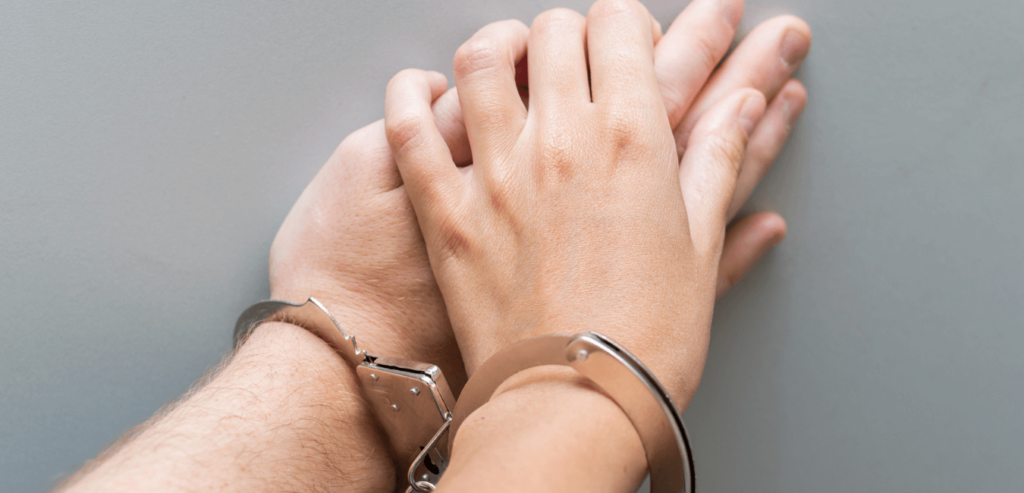Few things in this world can fill the personal void that a loving, mutually fulfilling relationship can. But codependency takes filling that personal void to an extreme. Codependency is an emotional and behavioral condition that affects a person’s ability to set boundaries with others. So how does codependency affect relationships? This post explains.
What is Codependency?
Codependency is a form of insecure attachment in which one partner needs the other, and the other partner likes to be needed.
When someone you love deals with addiction, it’s natural to want to help them. But codependency seeps in when that desire to help derails your own life. You might find yourself going out of your way to help them improve, taking measures you wouldn’t usually take for others you know or care for, and ultimately hurting yourself in the short or long term.
Characteristics of Codependent People
It can be easy for an outsider to look at a couple and see flaws in their relationship. But codependency has its own set of telltale signs unique to other relationship issues.
Signs of codependency include:
- An Inflated Sense of Responsibility for Others’ Actions. This sense of responsibility occurs when a person feels the need to take charge of their partner’s addiction and their mistakes and shortfalls.
- The Tendency to Confuse Love and Pity. Codependent people may tend to take it upon themselves to “rescue” those in difficult situations. They often wind up enabling their afflicted loved ones and worsening their overall situation.
- Problems with Intimacy and Boundaries. When a person has an addiction, their loved one might go out of their way to fulfill physical or emotional needs. For example, instead of establishing ground rules for a relationship, a person may take it upon themselves to be responsible for their partner’s happiness (and wind up neglecting their own).
- The Fear of Abandonment or Being Alone. Fear of being alone is a major signifier of codependency. A person who fears not having their loved one to appease and “take care of” might also fear the guilt of not doing what they could to “take care of” that loved one.
- A Sense of Guilt When Asserting Themselves. When a codependent person has a moment of clarity, sees the situation for what it is, stands up for themselves, and makes their true feelings known, the sense of guilt afterward might be overwhelming and put them back in a weak, subservient position.
How Does Codependency Affect Relationships?
Codependent relationships have inequality of power between the partners. One person takes, and the other gives. The wants of the “taker” far outweigh the needs of the “giver.” And the “giver” finds their identity in satisfying the “taker’s” desires. Fulfilling these needs usually involves the “giver” sacrificing themselves.
A codependent relationship can result in burnout and exhaustion. A partner can invest so much into their codependency that there’s little left to care for themselves physically, mentally, or even spiritually.
It also can result in neglect of other relationships. A married mother, for example, may put so much time, energy, and emotion into her husband that her relationships with her children suffer. She’s not taking care of her offspring. And she’s treating her husband like a child, catering to his every whim.
As it’s written in Genesis 2:24, in the eyes of God, a husband and wife are “one flesh.” But it’s ultimately unhealthy to make your own identity contingent on the “needs” of someone else. You shouldn’t completely give up your own identity and needs to meet your partner’s desires.
Codependent Relationships and Sex Addiction
Sex addiction can also be the reason for a codependent relationship. This connection can happen when a husband has a sex addiction, and his wife disregards her own needs and represses her feelings and emotions to appease him. She also may ignore his behavior or her concerns about what might be happening and make excuses for him.
She may make her husband and his health, welfare, and safety more important than her own. And she may ultimately sacrifice her own needs, desires, and sense of self-worth to satisfy him. This sacrifice makes it especially difficult for the relationship to survive.
Ways to Overcome Codependency in a Marriage
While codependency in a marriage isn’t easy to resolve, it’s far from unbeatable. There are ways to break the cycle of codependency. In a Christian marriage, requires plenty of prayers and confessing wrongdoings:
“If we say that we have no sin, we deceive ourselves, and the truth is not in us. If we confess our sins, He is faithful and just to forgive us our sins and to cleanse us from all unrighteousness.” (1 John 1:8-9, NKJV)
But confessing sins to God alone isn’t enough. You also need to be honest with each other:
“Confess your trespasses to one another, and pray for one another, that you may be healed…” (James 5:16a-b, NKJV)
Being honest with each other is truly biblical. It’s also psychologically beneficial, especially when your partner’s acceptance, forgiveness, and love follow it.
Other ways to help overcome marriage codependency include:
- Setting and Respecting Boundaries. Boundaries involve laying down clear lines between partners regarding desires and interests. The goal is to respect each other and develop a relationship in which giving and taking are more equal.
- Changing Self-Doubt Into Self-Reliance. You and the Lord – not your partner – should be the sources of your strength and happiness.
- Being Aware of Your Spouse and Yourself. Take stock of who is fulfilling what roles in your relationship. Then decide who should fulfill which roles and how.
- Seeking Help When Needed. You may think you can fix your relationship yourself. But you probably need help from someone experienced outside of family or friends. This help may include therapy, counseling, or coaching to break the cycle of codependency.
How Boulder Recovery Can Help
If you’re in a codependent relationship, Boulder Recovery is here to help. Since intimacy disorders affect both partners in a relationship, we provide specialized services for husbands and their wives.
The Men’s 14-Day Intensive is an in-person program designed for Christian men struggling with intimacy disorders, including pornography and sex addiction.
And through our Partner Support Program, wives meet virtually to discuss and learn ways to overcome marriage difficulties.
Codependency doesn’t have to define your marriage. Love, care, and mutual support can be the hallmarks of your relationship. Reach out to Boulder Recovery to start your healing journey.






